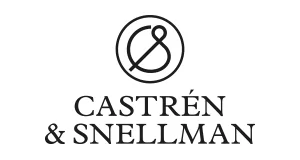The Tokyo Olympics have been delayed to next year, but issues relating to Olympic marketing and responsibility are as current as ever. The Olympic movement is one of the world's most recognisable sports brands. The Olympic Symbol are associated with strong images like inspiration, excellence, optimism and diversity, and when used correctly, the Olympics' brand value is immense. However, the brand is more than just an expensive logo: responsible Olympic marketing can be used to benefit important social causes.
The commercial exploitation of the reputation of the Olympic movement has been restricted so that official commercial partnerships can be used to fund the Organising Committees of the Olympic Games and the work of National Olympic Committees. Due to the global attention focused on the Olympics and the significant financial interests involved, the Olympic movement puts a great deal of effort into protecting its trademarks and brands. The effective protection of the Olympic brand benefits all of the official Olympic partners.
OLYMPIC SPONSORSHIP CHANNELS INCOME INTO SPORTS
Olympic sponsorship takes place through an agreement between the Olympic organisation and a company. This agreement grants the sponsoring company the right to use certain Olympic intellectual property rights, such as certain trademarks. The sponsor also gets the opportunity to engage in Olympic-related marketing in exchange for their financial support. Olympic sponsorship programmes are always based on the principle of exclusivity for a certain product category. Under the guidance of the International Olympic Committee (IOC), all sponsor marketing seeks to uphold the ideals and brand value of the Olympics and to protect the exclusive rights of Olympic sponsors.
Sponsors support the organisation of the Olympics and the activities of the Olympic movement in many different ways. In addition to valuable financial resources, they provide goods, services, technology and expertise. The support of sponsors also promotes the Olympic movement's work in the fields of education, the environment, culture and youth and supports the development of athletes across the globe. Sponsors also develop advertising and marketing activities that help promote the Olympic values and increase the general public's awareness of the Olympics and support for Olympic athletes.
The IOC distributes 90% of its income to organisations in the Olympic movement to support the organisation of the games and to promote the global development of sports. The remaining 10% goes to the administration of the Olympic movement. The IOC distributes over 3.4 million dollars a day to support athletes and athletic organisations on every level around the world.
The expenses of the Olympic Team Finland are covered using the funds of the Finnish Olympic Committee and the IOC. In exchange for supporting the Finnish Olympic Committee, partner companies gain appeal to support the success of their own business. Partnerships are built around a multifaceted array of campaigns, responsibility programmes, licensing and promotions.
AMBUSH MARKETING IS PROHIBITED
The trademarks and other intellectual property rights relating to the Olympics are the property of the IOC and its national member associations, and their use without permission is prohibited. Anyone who is not an official partner of the IOC or Finnish Olympic Committee is prohibited from creating the impression—whether through advertising, marketing or communications—that they are partners of the Olympic movement either locally or globally.
Because of how well known the Olympic brand is, Olympic intellectual property rights involve significant financing interests, and the careful supervision of these interests is vital to maintain the reputation and continuity of the activities of the Olympics. Official sponsorship is also a significant investment for partners, who are entitled to assume that outside parties will not be able to benefit from the Olympic brand without permission. However, significant financial interests inevitably attract parties seeking to illicitly exploit the reputation of the Olympics or of Olympic athletes. One way that the exclusivity of Olympic sponsors is sought to be protected is through the prevention of ambush marketing.
Ambush marketing is when someone other than an official sponsor refers to the games in their marketing either directly or indirectly in an effort to create the false impression of that they are commercially associated with the games and unlawfully benefit from the related advertising value. Ambush marketing is particularly harmful to the Olympic movement and its official sponsors. For example, 90% of the proceeds from the international main sponsors in the TOP (The Olympic Partners) programme is channelled to National Olympic committees, and ambush marketing reduces the return that the main sponsors get on their vital support of the Olympic movement. The continuity of this support is dependent on the financial benefit gained from the Olympics being allocated fairly between the organisers and financiers.
From a marketing perspective, the Olympics are a particularly important event, because only official partners who have paid for the right to use the Olympic brand in their marketing are allowed to benefit from it. Advertising outside of an official partnership and violations of the advertising rules directly reduce the funds raised for sports.
RESPONSIBILITY AS OFFICIAL PARTNERSHIP
The responsibility of marketing is becoming more important all the time, and it has a clear impact on the purchasing decisions of consumers. Responsibility is also one of the Olympic Committee's key values. In addition to responsibility for society, the environment and personnel, it also means social and financial responsibility towards all of the Olympic Committee's stakeholders and society in general. By supporting athletics and sports, companies have the opportunity to link themselves to the values of the Olympic movement. An official sponsorship provides companies with concrete value and complying with the principles of responsible marketing guarantees that income is channelled to the development of sports both on the global and national level.
Responsibility also entails that all marketing relating to the Olympics is done with permission in the form of an official partnership. When marketing is done responsibly, this supports the Finnish Olympic Committee's society work, particularly in encouraging people to exercise more and succeed in elite sports.
The globally renowned Olympic ideals create content, significance and value in business. The Olympic team and its sponsors provide spectators with unforgettable emotional experiences. Acting as an official partner and engaging in responsible marketing supports the success of individual athletes and the development of sports in general.
Castrén & Snellman is proud to support athletics and sport as well as the important work that the Finnish Olympic Committee does in society. As an official partner of the Finnish Olympic Committee, we safeguard the Olympic brand in Finland and make sure the Olympic marketing is done right. We also assist the Finnish Olympic Committee in many sports-related legal issues.
The content of this article is intended to provide a general guide to the subject matter. Specialist advice should be sought about your specific circumstances.


